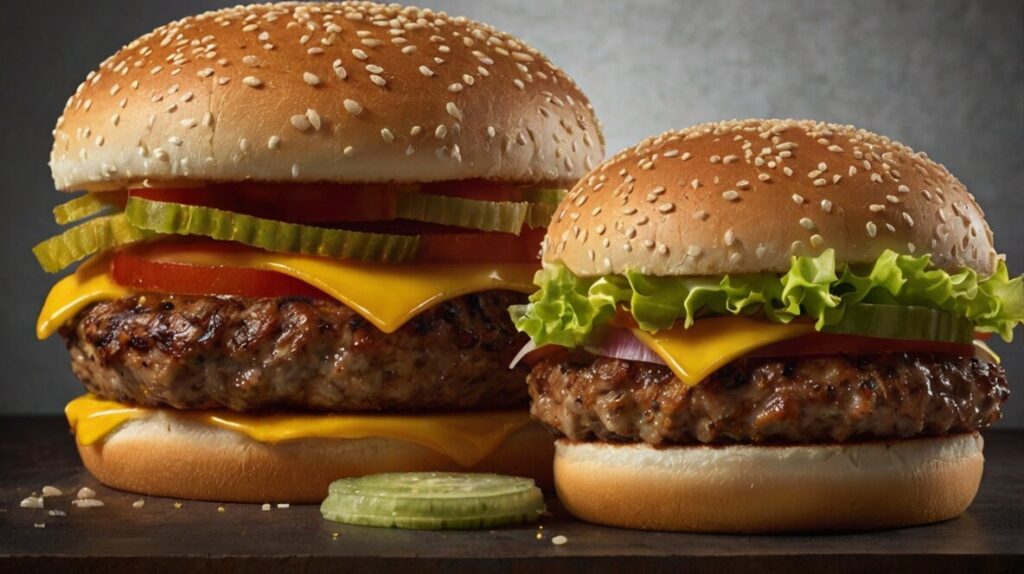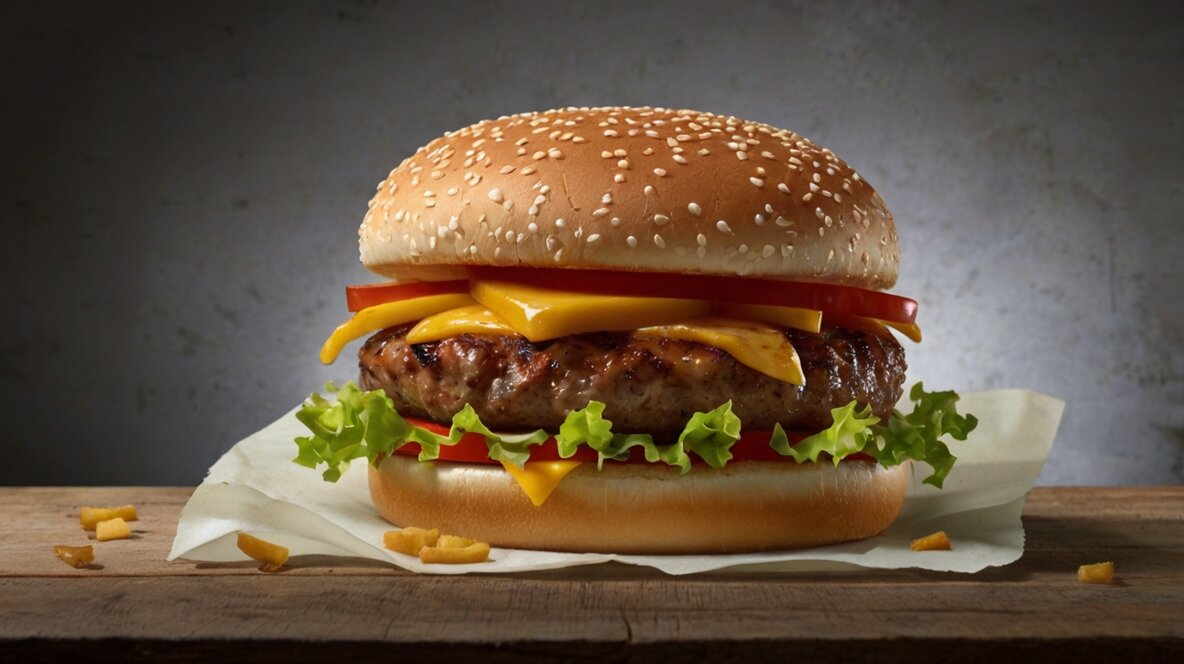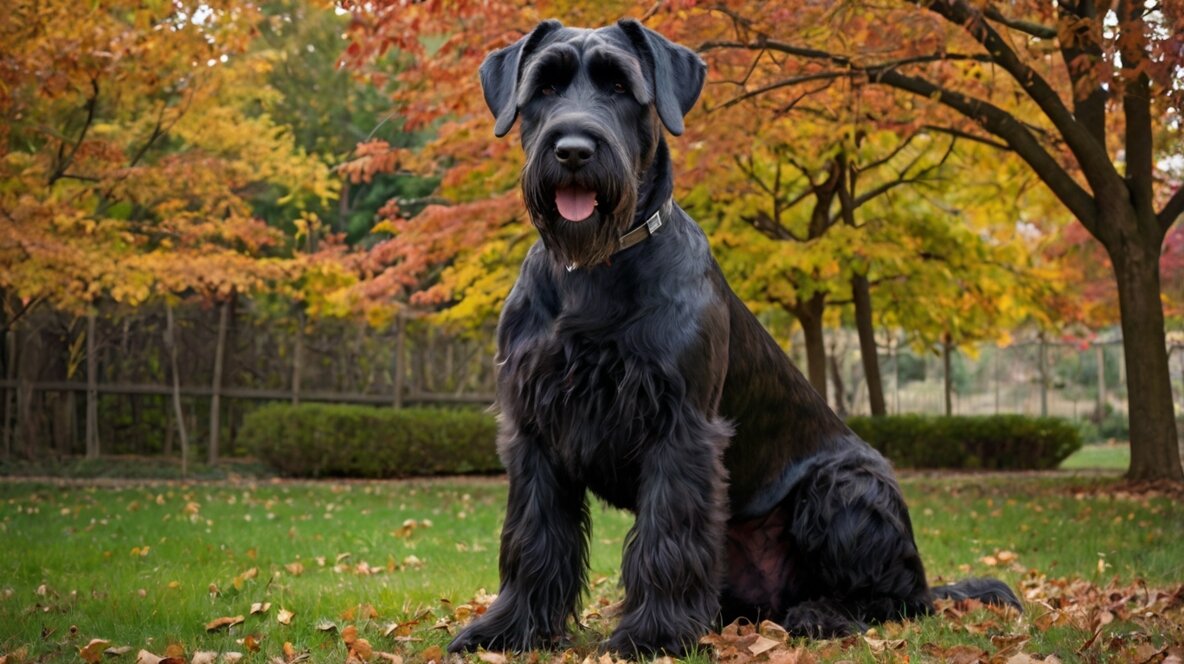Table of Contents
1. Introduction
Cats are curious creatures that often show interest in what their human companions are eating. As pet owners, we sometimes wonder if sharing our favorite treats, like a McDonald’s burger, could be harmful or even beneficial to our feline friends. This article will explore whether or not your cat can safely consume a McDonald’s burger, what the risks are, and provide expert advice on how to keep your cat’s diet healthy.
2. What’s in a McDonald’s Burger?

a. Common Ingredients of a McDonald’s Burger
A typical McDonald’s burger includes ground beef, bun, cheese, pickles, onions, ketchup, mustard, and sometimes other toppings depending on the variety. These ingredients are safe for humans but not necessarily suitable for pets.
b. Nutritional Content Overview
A McDonald’s burger is high in calories, fat, and sodium, and contains preservatives that extend its shelf life. While these factors may not be harmful to humans in moderation, they can be problematic for cats, which have very different nutritional needs.
3. Is McDonald’s Burger Safe for Cats?
a. Cats’ Dietary Needs vs. Burger Ingredients
Cats are obligate carnivores, which means their diet primarily consists of meat. While the beef patty might seem harmless, the additives like salt, onions, and other seasonings pose significant health risks. Additionally, cats require a diet high in protein and fat but low in carbohydrates, which is far from the nutritional profile of a McDonald’s burger.
b. Potential Risks to Cats from Burger Ingredients
Processed foods, such as McDonald’s burgers, contain high levels of fat and sodium, which are harmful to cats. Ingredients like onions and garlic can be toxic, and even small amounts can lead to severe health complications, including digestive upset, dehydration, or even poisoning.
4. Understanding Cats’ Digestive Systems
a. Carnivorous Nature of Cats
Cats have evolved as strict carnivores, meaning their digestive systems are specialized for meat consumption. They lack the necessary enzymes to break down plant-based or heavily processed foods like those found in fast food.
b. How Cats Process Different Food Types
Unlike humans, cats have shorter digestive tracts that are optimized for quickly processing meat. Foods that are high in fat, carbohydrates, and additives can lead to digestive issues, making McDonald’s burgers a poor choice for their diet.
5. Ingredients That Can Harm Cats
a. High Fat and Sodium Content in Burgers
Excess fat can lead to obesity and pancreatitis in cats, while too much sodium can cause dehydration or kidney issues. A McDonald’s burger, especially with cheese and sauces, is far too salty and fatty for a cat’s diet.
b. Onions and Garlic as Toxic Ingredients
Even trace amounts of onion or garlic in a burger are toxic to cats. These ingredients can damage their red blood cells, leading to anemia, which, if untreated, can be fatal.
6. Benefits and Downsides of Human Food for Cats
a. Occasional Treats vs. Regular Diet
While sharing a small, plain piece of unseasoned meat from a burger might not harm a cat, feeding them human food regularly can disrupt their nutritional balance. Cats need specifically formulated food to meet their unique dietary requirements.
b. Consequences of Feeding Cats Processed Foods
Regular consumption of processed foods, like burgers, can lead to weight gain, gastrointestinal problems, and long-term health complications, such as heart disease or liver problems.
7. What Happens if Your Cat Eats a Burger?
a. Immediate Symptoms to Watch For
If your cat has eaten part of a McDonald’s burger, monitor them for symptoms such as vomiting, diarrhea, lethargy, or difficulty breathing. These signs may indicate an adverse reaction or toxicity.
b. Long-term Health Effects
Consistently feeding your cat human food, particularly fast food, can lead to long-term health problems like obesity, diabetes, and liver disease. It’s important to recognize that even a small amount of unhealthy food can have lasting effects on their health.
8. Expert Opinions on Feeding Cats Human Food
a. Veterinarian Insights on Cat Diets
Veterinarians overwhelmingly recommend avoiding human food when feeding cats. According to experts, a balanced diet formulated specifically for felines is essential to maintain their health and longevity.
b. Case Studies of Cat Health Issues
Several case studies highlight the dangers of feeding cats foods high in fat and sodium, showing links to obesity, digestive issues, and chronic illnesses. These cases emphasize the importance of sticking to a cat’s natural diet.
9. Alternatives to McDonald’s Burgers for Cats
a. Safe Human Foods for Cats
If you want to share food with your cat, opt for safe alternatives such as cooked, unseasoned chicken or fish. These are closer to their natural diet and pose fewer health risks.
b. Cat-friendly Snacks and Treats
Many commercial cat treats are designed to mimic the flavors and textures cats enjoy without the harmful ingredients found in human food. Stick to these to keep your cat happy and healthy.
10. Practical Tips for Feeding Cats Safely
a. Guidelines for Treating Your Cat Safely
Always ensure that any food given to your cat is free of toxic ingredients, like onions, garlic, and excessive salt. Moderation is key when offering any treats outside of their regular diet.
b. What to Avoid at All Costs
Avoid giving your cat foods that are high in fats, sugars, or processed ingredients, as these can lead to immediate and long-term health issues.
11. Common Myths about Cats and Human Food
a. Debunking Myths About Cats Eating Junk Food
Many people believe that a small amount of junk food won’t hurt a cat, but even small portions can have a significant impact on their health due to their smaller size and different digestive systems.
b. Truths About Cat Digestive Health
Cats have unique dietary needs that cannot be met by human foods. Their digestive systems are not designed to process carbohydrates and additives commonly found in processed foods.
12. What to Do if Your Cat Eats a McDonald’s Burger
a. First Aid Steps
If your cat consumes a McDonald’s burger, remove any remaining food and monitor them closely. If symptoms of distress appear, contact your veterinarian immediately.
b. When to Call the Vet
If your cat shows signs of vomiting, lethargy, or diarrhea after eating a burger, it’s crucial to consult a veterinarian to prevent more serious complications.
13. How to Create a Balanced Diet for Your Cat
a. Understanding Cat Nutrition
Cats require a diet that is high in animal protein and low in carbohydrates. Commercial cat
food is formulated to provide all the necessary nutrients your cat needs.
FAQ
Can my cat eat a McDonald’s burger?
No, McDonald’s burgers are not safe for cats due to harmful ingredients like onions, garlic, and excessive fats and salts.
What should I do if my cat accidentally eats a burger?
Monitor your cat for symptoms like vomiting, diarrhea, or lethargy. If you notice any of these signs, contact your veterinarian immediately.
Are there any human foods that are safe for cats?
Yes, plain cooked meats (like chicken or turkey) and certain commercial cat treats are safe. Avoid seasoned, processed, or sugary foods.
How often can I give my cat treats?
Treats should make up no more than 10% of your cat’s daily calorie intake. Stick to treats designed specifically for cats to ensure they get proper nutrition.
Why can’t I just give my cat a little bit of my food?
Cats have different dietary needs than humans. Human food can contain ingredients harmful to cats and disrupt their nutritional balance. Always opt for cat-specific food and treats.



